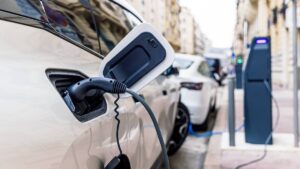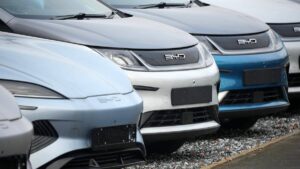WA’s charging network a win for EV drivers

Pic: Stevica Mrdja / EyeEm / EyeEm via Getty Images
Federal Energy and Emissions Reduction Minister Angus Taylor can leave his big diesel SUV behind and putter about in an electric vehicle if he visits Western Australia after early 2024.
WA has committed to installing up to 90 fast-charging stations at 45 different locations along key travel routes that will ensure that EV owners can be reasonably sure that they won’t run out of charge on long drives.
The EV charger network, part of the state’s $21m Electric Vehicle Fund, connects Perth to regional parts of the state, stretching north towards Kununurra, south to Esperance and east to Kalgoorlie.
It will also have the distinction of being Australia’s longest charging network.
WA has also launched its Electric Vehicle Action Plan, which is aimed at preparing the state for the rapid uptake of EVs by making the electrical network more resilient while supporting the continued uptake of rooftop solar.
Synergy’s EV tariff pilot has indicated that a time-of-use tariff can be effective at encouraging EVs charging at off-peak times, which align with when rooftop solar produces the most power.
The state has also committed to a minimum 25% EV acquisition target for government fleets by 2025-26.
While there’s still no word out yet on whether there will be any incentives for buying EVs, the clear support for EVs contrasts with the mixed messaging coming out from the Federal Government.
Taylor does not appear to be a proponent of EVs given that he was widely quoted as saying earlier this year that he wouldn’t drive an EV as he lives in regional New South Wales and claiming that he drives huge distances each year.
Even when the Government announced at the end of July that it will expand Australia’s fast charging network by providing funding for new chargers, he was quick to add that the government was “focused on ensuring Australians can drive their preferred choice of vehicle – be that petrol, diesel, hydrogen or electric-powered”.
A rather unusual viewpoint for a minister who has emissions reduction in his portfolio to take.
Other EV adoption hurdles
Over in South Australia, the state’s attempt to follow Victoria in proposing a tax on EVs is likely to discourage potential buyers.
A survey by The Australia Institute found that while 42% of respondents were considering an EV for their next car, 69% agreed that they would be less likely purchase an EV if the state went ahead with its road user charge.
Likewise, 72% said they would support the state government reducing the cost of EVs through subsidies and/or stamp duty waivers.
“South Australia is leading the nation with its adoption of wind and solar power, but those efforts will be badly undermined if the government moves ahead with its EV Tax,” The Australia Institute SA director Noah Schultz-Byard said.
“Tailpipe emissions in South Australia remain high and, in light of the IPCC’s latest report on the state of the climate, we should be doing all we can to switch to zero-emission vehicles.”
Related Topics
UNLOCK INSIGHTS
Discover the untold stories of emerging ASX stocks.
Daily news and expert analysis, it's free to subscribe.
By proceeding, you confirm you understand that we handle personal information in accordance with our Privacy Policy.








